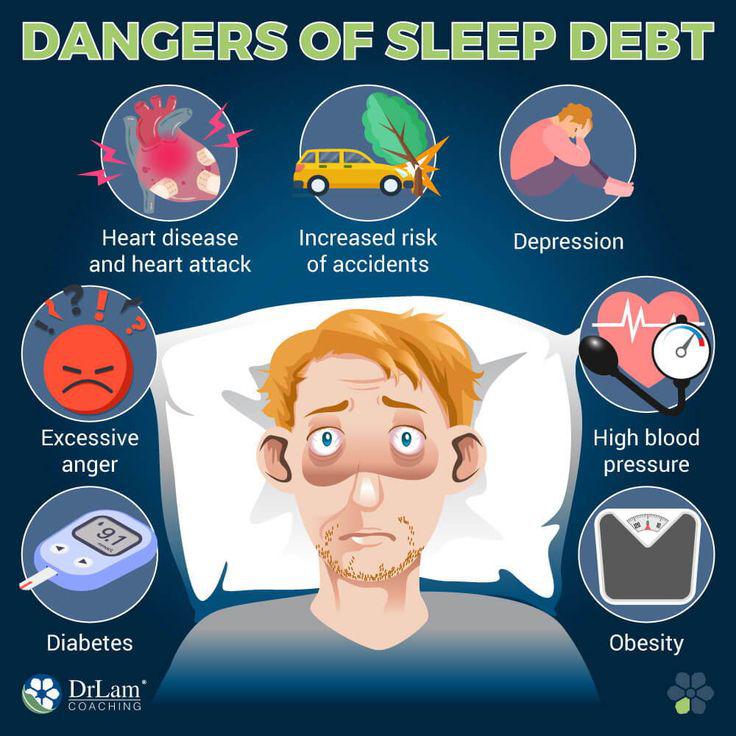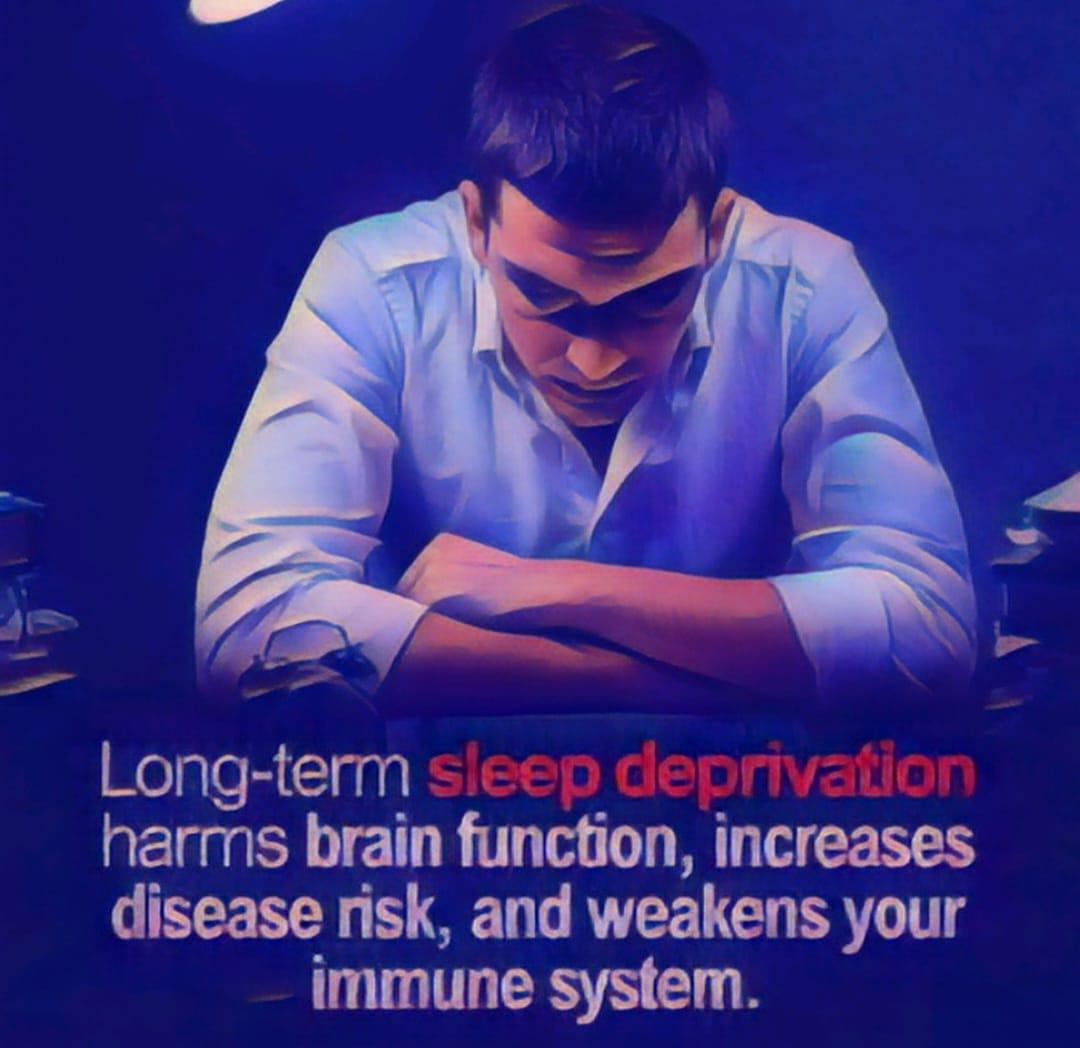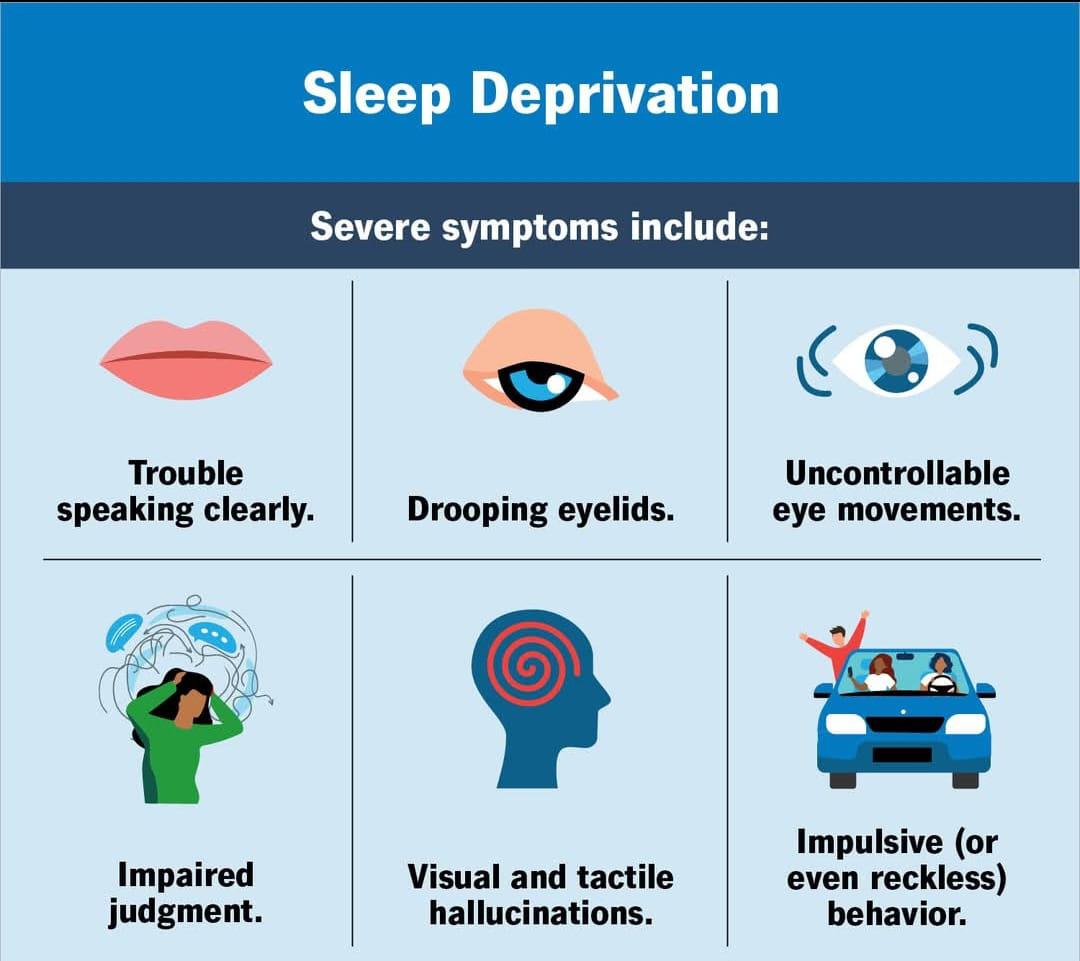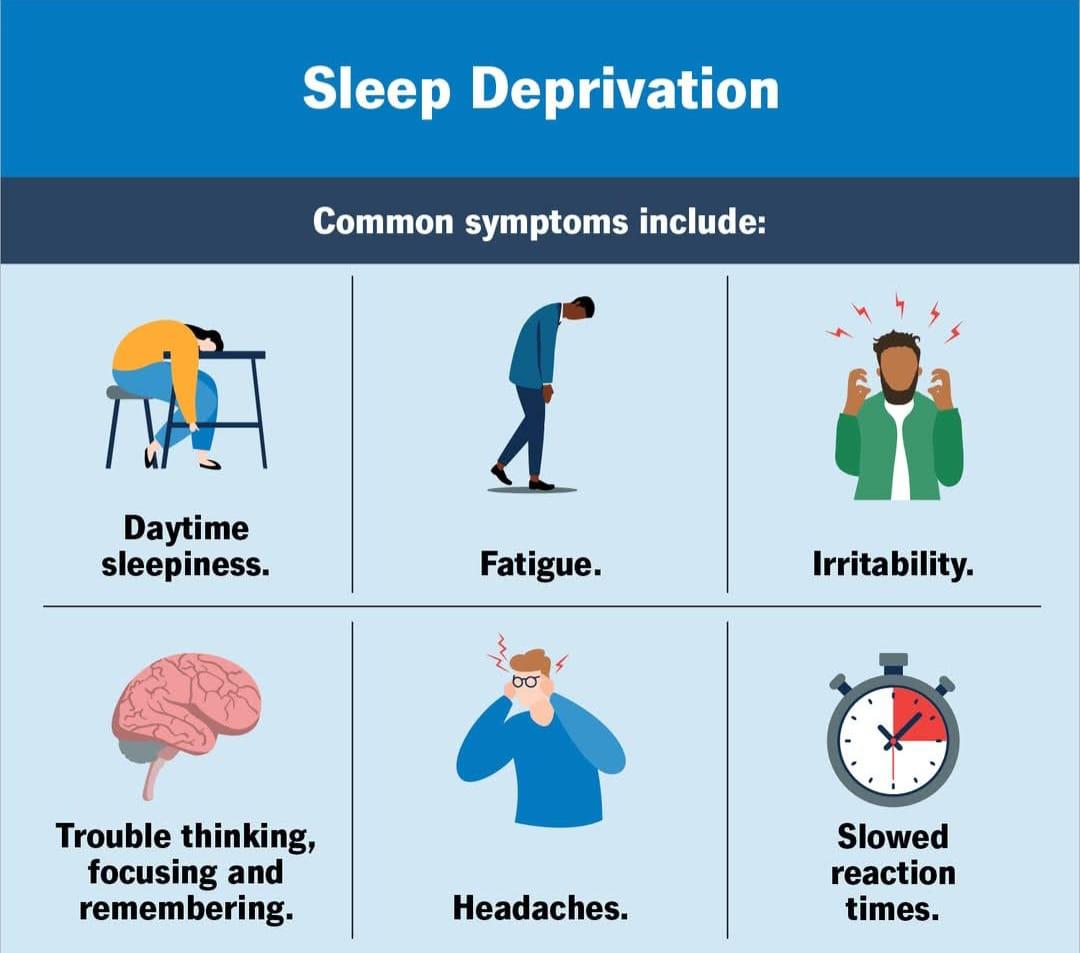Sleep Loss!
A common myth is that people can learn to get by on little sleep with no negative effects.but research shows that getting enough quality sleep at the right times is vital for mental health, physical health, quality of life, and safety.sleep deprivation is a condition that occurs if you don't get enough sleep.sleep deprivation can also take different forms.

For some people, sleep deprivation happens because they stay awake instead of sleeping.for others, they’re still sleeping, but they aren’t getting quality sleep, so they still wake up feeling tired.sleep deficiency is a broader concept. It occurs if you have one or more of the following:
1)You don't get enough sleep (sleep deprivation)
2)You sleep at the wrong time of day.
3)You don't sleep well or get all the different types of sleep your body needs.
4)You have a sleep disorder that prevents you from getting enough sleep or causes poor-quality sleep.
Did you know not getting enough sleep causes major damage to your heart.Those hours of lost sleep add up to a bigger health deficit than you may realize.Missing just three nights of sleep can have serious consequences for heart health, according to a new study.
Researchers found that sleeping only about 4.25 hours per night for three consecutive nights triggered a spike in 90 different inflammatory proteins in the blood—many of which are tied to conditions like heart failure, coronary artery disease, and atrial fibrillation. Even young, healthy individuals showed signs of heart stress, highlighting how quickly sleep loss can begin to damage the body.
The effects of poor sleep extend well beyond the heart. Inadequate rest raises stress hormones, disrupts blood sugar levels, and throws appetite regulation off balance, increasing the risk of overeating, weight gain, and type 2 diabetes.In short both the hormones and metabolism go for a toss.It also weakens the immune system and affects mental health by impairing mood, memory, and decision-making.Over time, chronic sleep deprivation can reduce the body’s ability to recover from illness or injury and interfere with hormone balance.
In severe cases, prolonged sleep deprivation can lead to psychosis, characterized by hallucinations, paranoia, and disorganized thinking. Sleepiness can impair cognitive function and reaction time, increasing the risk of accidents while driving or operating machinery. But if you ever need to survive on five hours of sleep , try to keep a regular sleep schedule and get more sleep from naps, if possible, to minimize the effects of the sleep deprivation.
To quickly recover from a lack of sleep, focus on re-establishing a regular sleep schedule, incorporating short naps, and making healthy choices during the day. Avoid excessive caffeine and alcohol, prioritize sunlight and light exercise, and eat balanced meals.
Simply put, good sleep isn’t a luxury—it’s a powerful protector of your entire body.
Comments (5)







